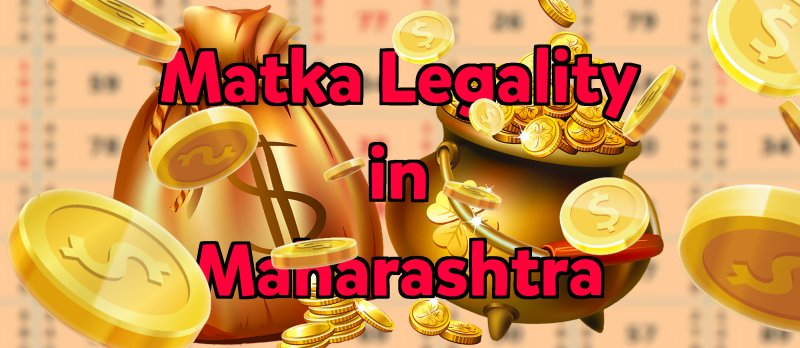Matka gambling holds a significant place in the cultural fabric of Maharashtra, India, with a rich history that dates back decades. This traditional form of gambling has left an indelible mark on the region, influencing social dynamics and cultural practices. In this exploration, we delve into the historical significance and cultural impact of the gambling game in Maharashtra.

Origins and Evolution of Matka
Matka, also known as Satta, is a form of lottery that originated in India during the mid-20th century. Originally a betting on the opening and closing rates of cotton transmitted from the New York Cotton Exchange, it evolved into a full-fledged gambling game.
Historical Context
Matka’s journey began in the 1950s when bets were placed on the rates of cotton. As the New York Cotton Exchange stopped the practice in 1961, punters/gamblers needed new ways to keep the matka business alive. Ratan Khatri, the founder, transformed the game into a random number selection game based on the opening and closing rates of imaginary products.
- Origination Period: Traces back to the 1950s, linked to the fluctuations in cotton rates.
- Transformation: Shift from cotton rates to random numbers in the early 1960s.
- Key Figures: Ratan Khatri and Kalyanji Bhagat, pioneers of the modern Matka game.
- Gameplay Evolution: From paper to electronic forms in contemporary times.
Explore more about the intriguing history of the game and its impact on the gambling scene. Click here to delve deeper into its rich past and current adaptations with Teen Patti Stars.
Impact on Society and Law
Matka not only influenced the gambling culture in India but also prompted significant legal and social changes. Over the decades, it faced severe scrutiny and legal challenges, which shaped its operation and perception in society.
The legacy of Matka extends beyond just a gambling game; it is a mirror reflecting the dynamic interplay between law, society, and traditional gambling practices in India. As we explore the legality of the game and its current status, the evolution of this game continues to be a subject of fascination and study.
Legal Framework in Maharashtra
Matka, a form of lottery gambling, remains a subject of intricate legal and regulatory scrutiny in Maharashtra.
Understanding the Regulatory Environment
In Maharashtra, the legal status of Matka gambling is governed by a combination of national statutes and state-specific regulations. Initially, betting was widespread, but shifts in legal frameworks have attempted to curb its prevalence.
- Historical Context: Trace the origins of Matka gambling laws in Maharashtra.
- Current Legislation: Overview of laws directly affecting Matka operations.
- Enforcement and Compliance: How regulatory bodies enforce these laws.
- Legal Challenges: Key court cases and legal battles related to Matka.
Discover more about the world of Matka and its legal considerations in Maharashtra on our detailed page by clicking this link.
Impact of Legislation on Matka
The impact of stringent laws has reshaped the Matka gambling scene in Maharashtra, with significant implications for both operators and participants. The enforcement of these laws has led to a decline in traditional operations, pushing it into more clandestine settings.
The legal framework in Maharashtra has deeply influenced the operational tactics and the very essence of gambling, reflecting a broader attempt to regulate or curtail such activities within the state. Understanding these laws provides crucial insights into the dynamics of gambling regulations in India.
Status in Maharashtra
In Maharashtra, the gambling game occupies a complex, often controversial space within both cultural practices and legal boundaries.
Historical Context and Current Legal Status
Matka, also known as Satta, is a form of lottery that originated in Mumbai in the 1960s. It began with bets based on the fluctuation of cotton rates transmitted from the New York Cotton Exchange to the Bombay Cotton Exchange. Over the decades, Matka evolved into a vast underground betting network. Despite its popularity, the legal framework in Maharashtra categorizes the game under ‘gambling activities’, which are largely prohibited under the Public Gambling Act, 1867. Recent years have seen efforts to address and clamp down on illegal operations, reflecting the state’s stringent stance on unauthorized gambling.
- Its origins trace back to the 1960s in Mumbai.
- Initially linked to the cotton rate fluctuations from the New York Cotton Exchange.
- Faces strict regulation under the Public Gambling Act.
- Current efforts focus on curbing the spread of illegal rings.
Explore the intricacies of Matka and its impact on Maharashtra’s legislative and social fabric. Delve deeper into how this traditional game influences modern legal structures.
Impact on Society and Law Enforcement
Matka’s presence in Maharashtra is not just a legal issue but also a social one, affecting diverse segments of the population. Law enforcement agencies continuously battle against the game syndicates which are deeply entwined in local communities. This ongoing conflict highlights the challenges of eradicating an entrenched cultural practice that operates beneath the surface of legality.
The game remains a vivid illustration of the challenges faced by legal systems in dealing with culturally ingrained practices. Maharashtra’s struggle with Matka legality exemplifies the broader dilemmas faced by India in balancing traditional activities with contemporary legal frameworks.
